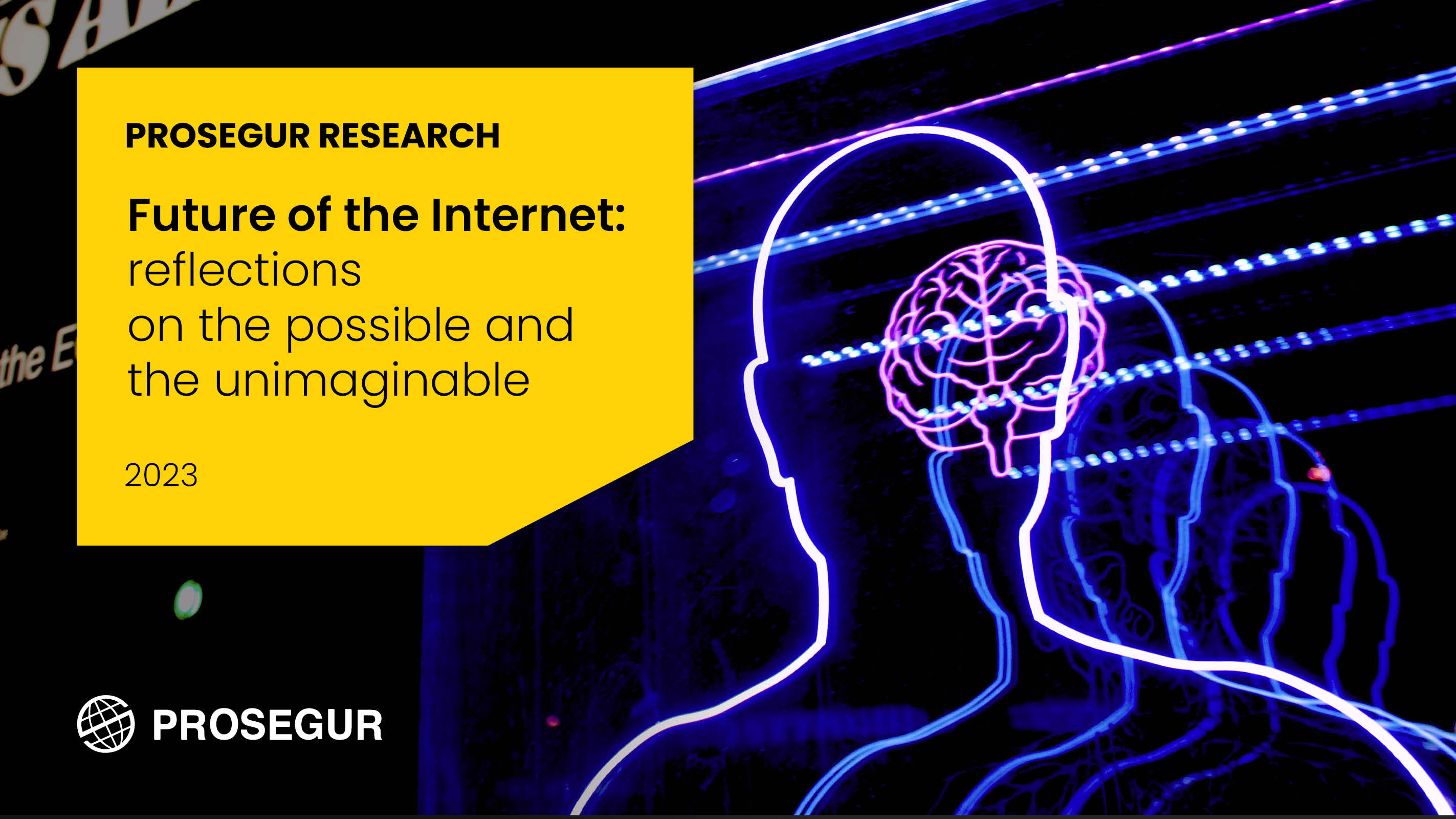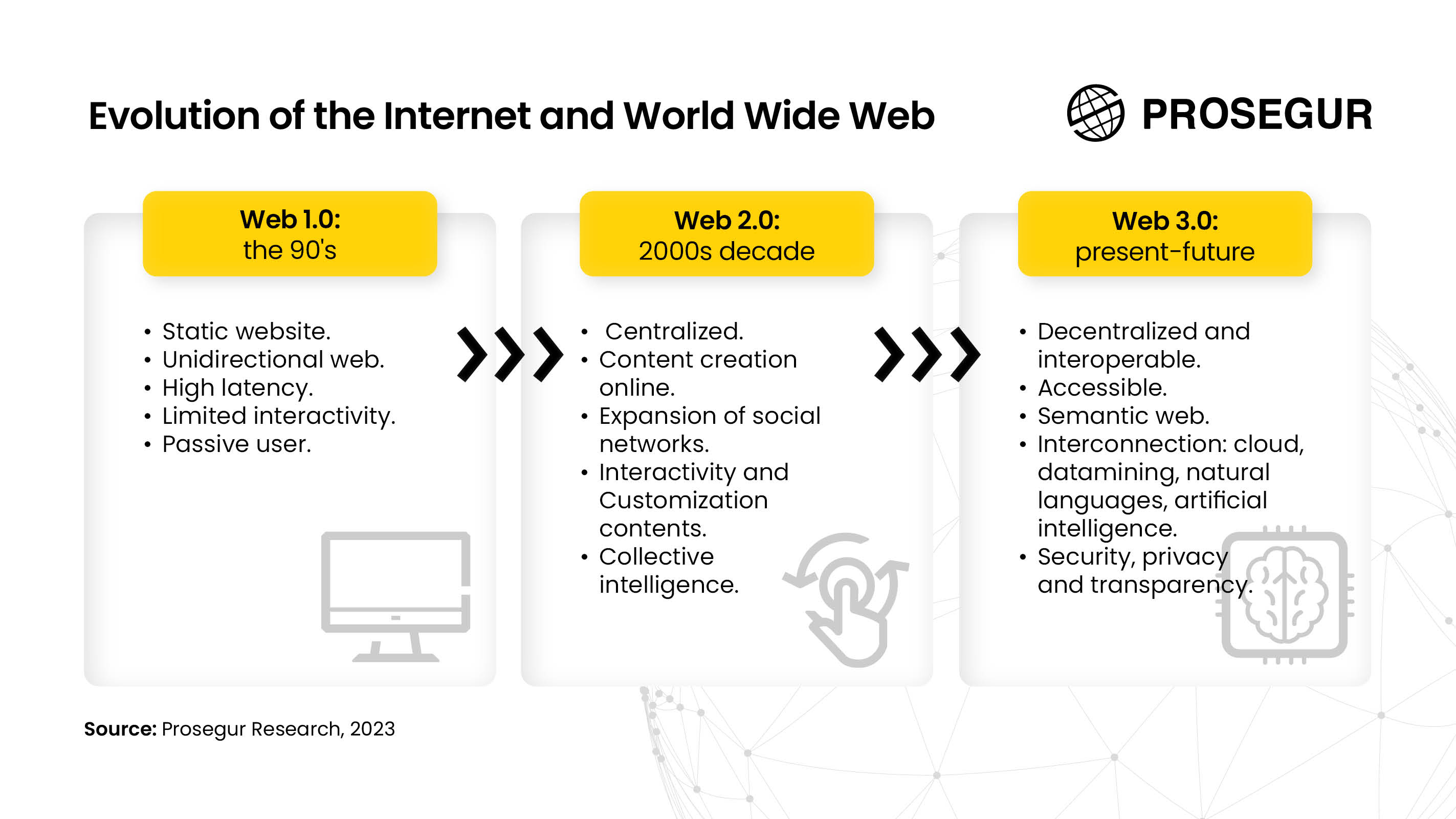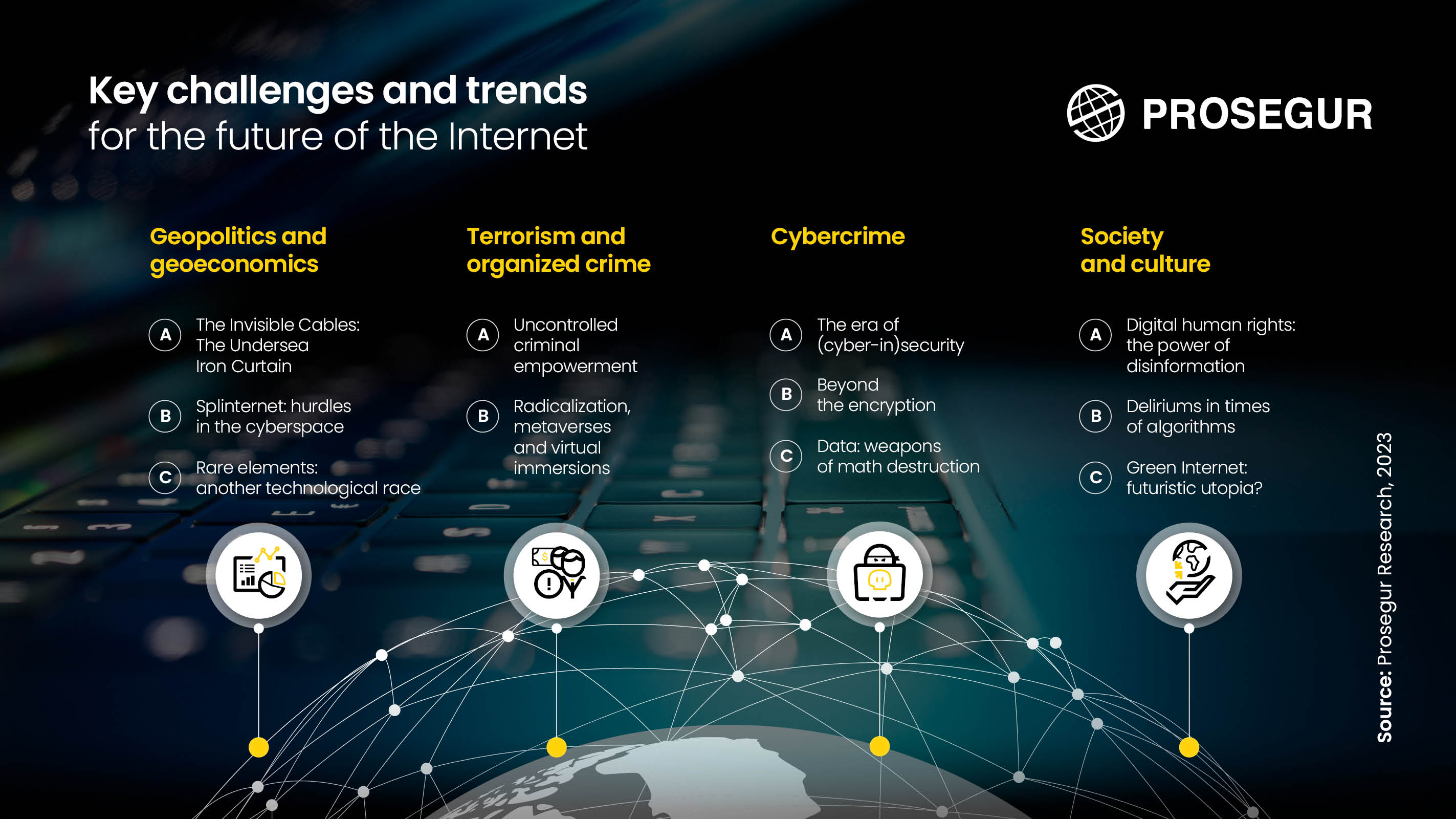Future of the Internet
21th of September 2023
The development of the Internet has undergone exponential growth in terms of its capabilities and operability in recent decades since its creation in the twentieth century. It was in the 1990s when the Internet experienced significant growth, as it transitioned into an accessible tool for the general public with web 1.0. A few years later, web 2.0 came to fruition in the mid-2000s, characterized by the active engagement of users in the network, promoting the creation of user-generated content, enhanced interactivity and content personalization.
The wake of Internet development persists along this journey of transformation at all levels, leading to what is now commonly referred to as Web 3.0: an evolution of the current landscape that encompasses the searching and interpretation of the meaning embedded within online content.
Despite the significant benefits that the evolution of the Internet towards Web 3.0 can bring in terms of employment, business, cultural and knowledge opportunities, among others, it is imperative not to underestimate the potential threats and security challenges of this common future.
This report identifies four major areas with potential security impacts: geopolitics and geoeconomics, highlighting international tensions, sabotage, espionage or fees; terrorism and organized crime, where criminal empowerment may increase to levels never seen before; cybercrime, with identity theft and multiple forms of cybercrime; and, finally, society and culture, where disinformation, the impact on ecosystems or addictions play a crucial role.
Download the report

Related posts

A twist on the world in 2023

The global context of occupational fraud



